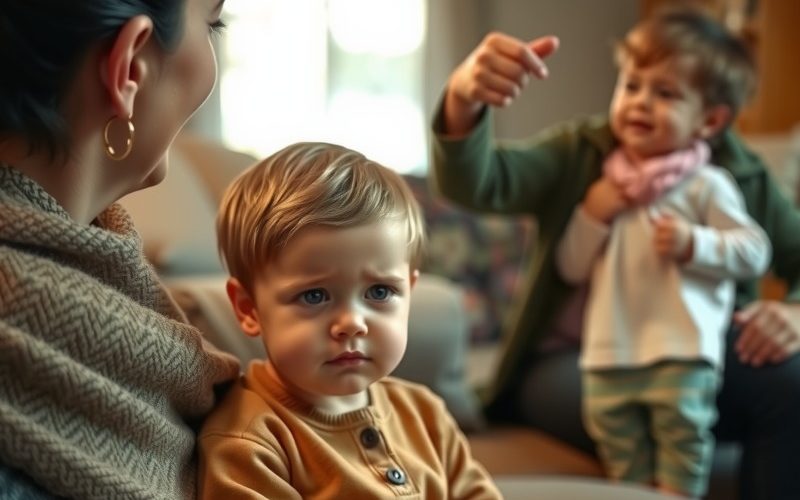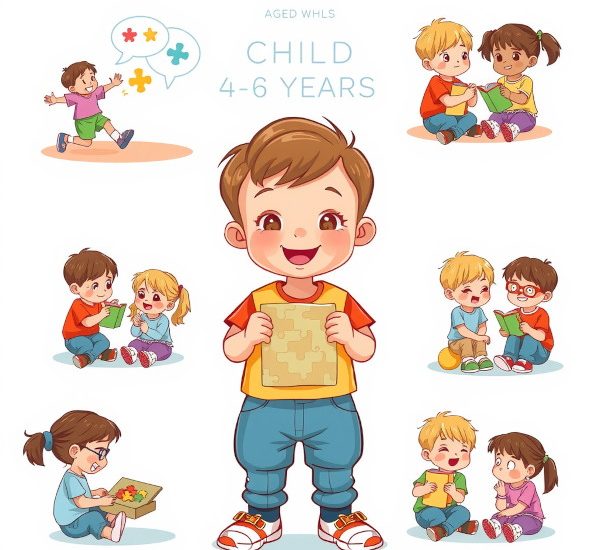How constant comparisons affect a child’s self-esteem development
Introduction
Childhood is a critical phase of life where the foundation for self-esteem is laid. As parents and caregivers, our role in nurturing this foundation cannot be overstated. However, sometimes, despite our best intentions, we may unknowingly engage in behaviors that can harm our child’s self-esteem development. One such behavior is the constant comparison with others—siblings, friends, or classmates. In this comprehensive blog post, we will explore how constant comparisons can affect a child’s self-esteem and provide practical strategies for fostering healthy self-worth.
Understanding self-esteem in children
Self-esteem refers to an individual’s overall subjective emotional evaluation of their own worth. When it comes to children, self-esteem encompasses how much they value themselves and their abilities. It plays an instrumental role in various aspects of their lives, including emotional well-being, social interactions, and academic performance.
Children with high self-esteem are more likely to handle conflicts better, resist negative pressures, and embrace challenges. They tend to smile more and enjoy interacting with others. They are also more likely to try new things, take healthy risks, and solve problems independently.
On the other hand, children with low self-esteem may feel unsure of themselves. If they think others won’t accept them, they may not participate in class activities or socialize. These children often deal with continuous self-doubt, which can manifest in various ways.
The impact of constant comparisons on a child’s self-esteem
When children are constantly compared to others—be it siblings or peers—they may start believing that their worth is tied to outperforming others rather than their inherent qualities or efforts. This belief can lead to feelings of inadequacy when they don’t measure up against these comparative standards.
For instance, consider two siblings: one excels academically while the other has a knack for sports but struggles with academics. If the parents constantly compare the sporty child’s academic performance with their sibling’s grades, it could erode their confidence in their unique abilities and strengths. They may start feeling “less than” or inadequate, leading to a drop in self-esteem. As a result, children may begin to associate self-worth with meeting external expectations rather than appreciating their own journey of growth and self-discovery.
Another subtle yet impactful scenario arises in school settings. When a child is frequently reminded of their classmates’ achievements in academics, sports, or extracurricular activities, they might begin to believe they are not “good enough.” Even well-intended comments like “look at how well your friend does in math” can make children question their own capabilities and value.
Signs your child may be struggling with low self-esteem due to comparisons
Low self-esteem can manifest in various ways in children. Here are some signs that your child might be struggling:
- Avoidance of new experiences or challenges due to fear of failure.
- Negative self-talk or being overly critical of oneself.
- Extreme sensitivity to criticism.
- Social withdrawal or difficulty making friends.
- Underperformance at school despite capabilities.
- An excessive need for external validation.
- Reluctance to express opinions or take initiative.
As parents, being aware of these signs can help us intervene early and provide necessary support. Remember, early intervention can make a significant difference in your child’s life. If left unaddressed, these feelings of inadequacy can carry into adolescence and adulthood, affecting their relationships, career aspirations, and overall mental health.
How parents unintentionally contribute to negative comparisons
Sometimes, we as parents may unknowingly contribute to harmful comparisons. Here are some common scenarios:
- Praising one child’s achievements in front of the other without acknowledging each child’s individual accomplishments.
- Setting the same expectations for all children, regardless of their unique strengths and interests.
- Using phrases like “why can’t you be more like…?” which directly compare your child with others.
- Making subtle remarks about other children’s achievements, unintentionally setting an unspoken benchmark.
- Imposing unrealistic societal standards, such as defining success solely by academic performance or athletic ability.
Awareness is the first step toward change. By recognizing these patterns, we can consciously avoid them and foster a more positive environment that celebrates individuality and personal growth.
Strategies to build healthy self-esteem without resorting to comparisons
Helping children develop a strong sense of self-worth requires mindful parenting. Here are some actionable strategies:
- Promoting individuality – Each child is unique with their own set of qualities and interests. Celebrate this individuality by encouraging them to pursue what they love, irrespective of how it compares with others’ achievements or interests. Highlight their unique talents rather than emphasizing competition.
- Positive reinforcement – Praise should focus on your child’s efforts and improvements rather than only outcomes or achievements. Avoid comparing their accomplishments with others. Instead, highlight their progress and hard work.
- Setting realistic expectations – Help your child set personal goals based on their abilities and interests rather than what others are doing or achieving. This approach fosters a sense of self-worth that is independent of external comparisons.
- Teaching resilience – Life comes with its fair share of failures and disappointments. Guide your child through these challenging times without drawing comparisons to others’ successes. Teach them that everyone has strengths and weaknesses, and it’s okay not to excel at everything.
- Creating a safe space for expression – Allow children to express their feelings, fears, and frustrations without fear of judgment. An environment that supports open communication fosters confidence and self-worth.
- Modeling self-acceptance – Children learn by observing. When they see their parents practicing self-acceptance, embracing their strengths, and acknowledging their limitations without comparison, they internalize these behaviors.
Role of schools and teachers in avoiding harmful comparisons
Teachers play a significant role in shaping children’s self-esteem. In the classroom setting, constant comparison with peers can be detrimental to a child’s self-worth. Therefore, teachers should focus on each student’s individual progress instead of making comparative evaluations.
Recognizing each student’s unique strengths can foster a positive learning environment where every child feels valued for who they are, not how they compare to others. It encourages students to appreciate their own growth journey rather than constantly measuring themselves against their peers.
Moreover, implementing inclusive teaching practices that emphasize cooperation over competition can create an atmosphere of encouragement. For example, recognizing personal milestones rather than ranking students can help nurture self-confidence.
Conclusion
Nurturing healthy self-esteem in our children is crucial for their overall development and well-being. While it may seem natural to compare our children with others as a benchmark, constant comparison can do more harm than good by undermining their self-worth.
As parents, let’s strive to celebrate our children’s individuality, encourage their unique strengths, guide them through challenges without resorting to comparisons, and provide an environment where they feel valued for who they are—not how they stack up against others.
Call-to-action (CTA)
We’d love to hear from you! Share your experiences or tips on fostering healthy self-esteem in children without resorting to comparisons. Let’s learn from each other and create a supportive community for all parents navigating the rewarding yet challenging journey of parenthood.




